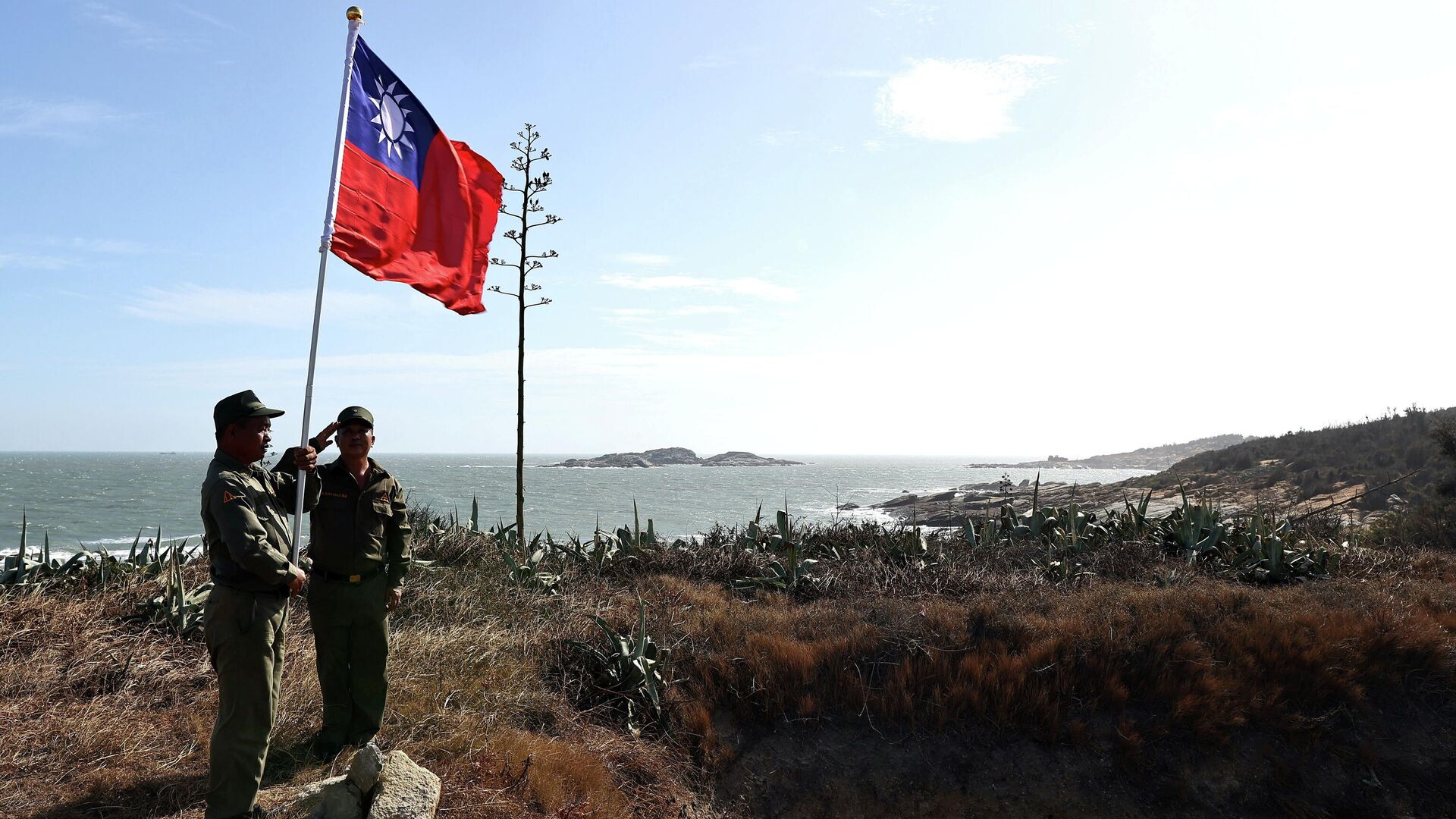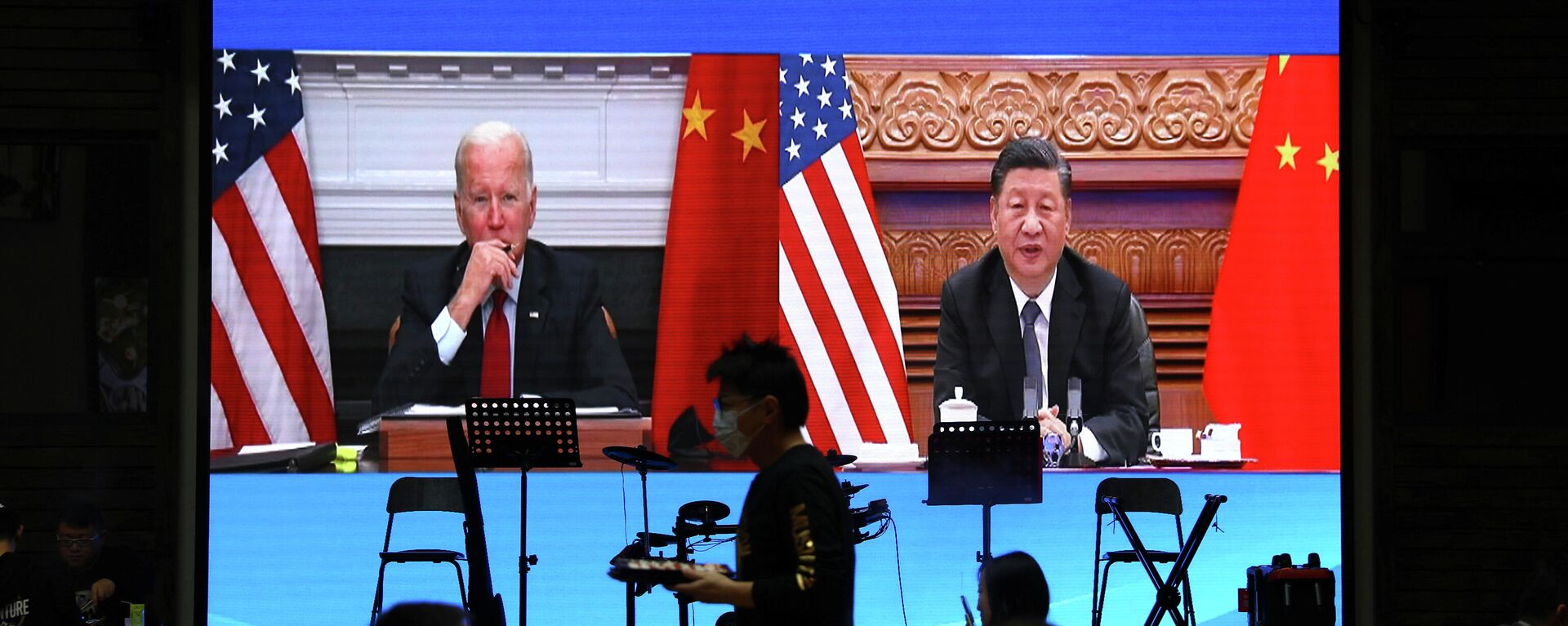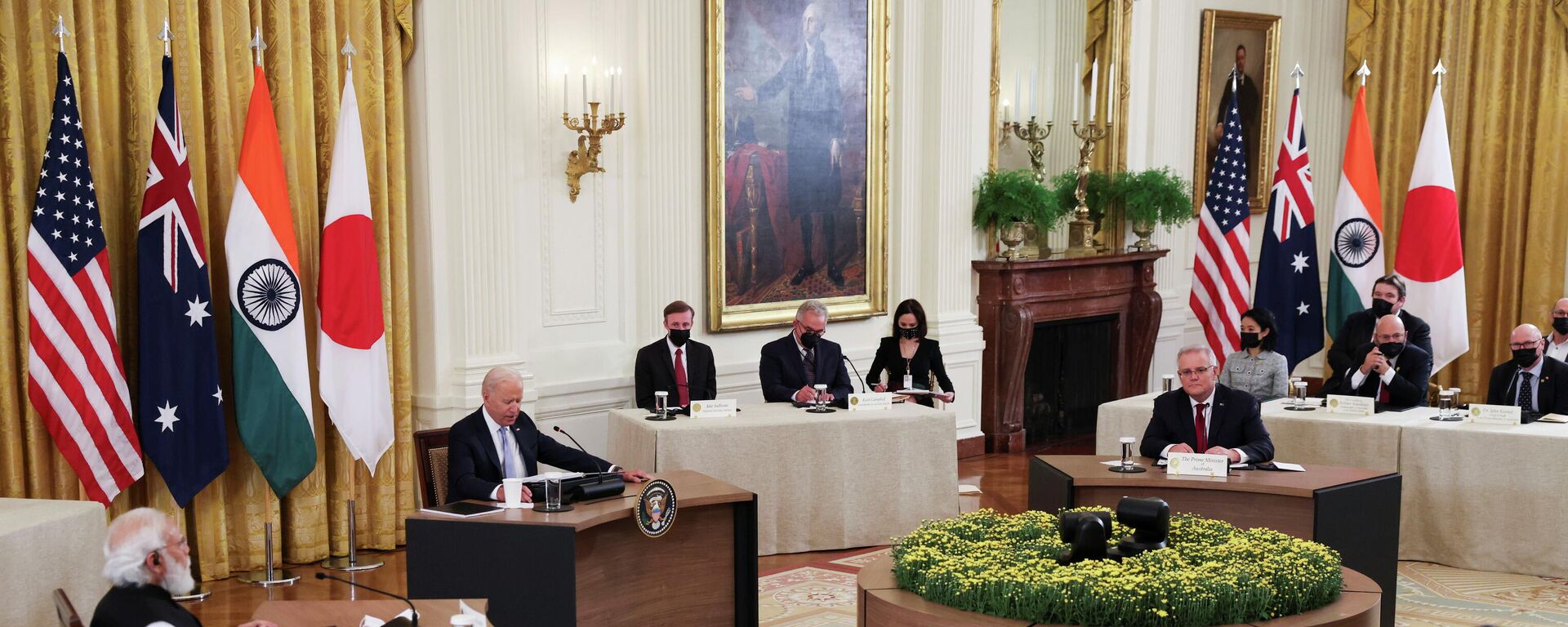US Senators Lobby India on Defending Taiwan in Case of Possible ‘Invasion’ from China
14:57 GMT 17.11.2021 (Updated: 12:43 GMT 19.06.2023)

© REUTERS / ANN WANG
Subscribe
The fate of the self-governed Chinese province of Taiwan figured prominently in the virtual summit between US President Joe Biden and his Chinese counterpart Xi Jinping on Tuesday. Xi told Biden that Beijing was “patient” in seeking reunification with Taiwan but those supporting its "independence" were “playing with fire."
A US Congressional delegation led by Senator John Cornyn, the co-chair of the Senate’s India Caucus, disclosed on Tuesday that Congress members engaged in extensive discussions on the "Taiwan question" when they travelled to the Philippines, Taiwan, and India last week.
“India’s Minister of Foreign Affairs (Subrahmanyam Jaishankar) said that Taiwan isn’t just a Taiwan problem. It’s a China problem,” said Cornyn, while urging US Congress to consider additional budgeting in the National Defence Authorisation Act (NDAA) for Taiwan-related provisions.
“In other words, what’s at stake here is much larger than the future of one nation,” Cornyn, a Republican senator from Texas, also remarked.
There is no question that China is a looming presence, but it's not in our backyard. We don't see its warships on our coastlines or worry about an imminent military invasion on our shores.
— Senator John Cornyn (@JohnCornyn) November 16, 2021
But that's not the case in the Indo-Pacific.
WATCH 📺https://t.co/UHhMjDh0ab
An official press release from the Indian government about the meeting between the US Congress delegation and Indian leadership, including Prime Minister Narendra Modi, makes no mention of Taiwan-related topics.
India doesn’t officially recognise Taiwan and adheres to the One-China Policy.
Cornyn reckoned that if China was “able to capture Taiwan” there wasn’t a reason to believe that the Chinese Communist Party (CCP) will stop there.
“China also has territorial claims against the Philippines, Japan, Vietnam, and India,” he noted.
“Taiwan shouldn’t be viewed as the CCP’s ultimate goal but the first domino and a quest to reach global dominance. If Taiwan falls, it won’t be the end but rather a beginning,” Cornyn remarked.
Passage of the NDAA, which is an annual affair, in the US Congress is instrumental in sanctioning America’s defence spending.
The Joe Biden administration’s initial estimate of $753 billion in federal defence spending has already shot up to $778 billion.
While the US House of Representatives has cleared the NDAA, the Bill is yet to be cleared in the Senate.
Cornyn said that NDAA was “critical” in the US-led goal in defending Taiwan from a possible Chinese "invasion," as he echoed fears that such a scenario could take place by 2027, or even earlier.
Former US Indo-Pacific Commander Philip Davidson said in September that Beijing could "invade" Taiwan by 2027.
“The Taiwan Partnership Act would establish a partnership between the US’ National Guard and Taiwanese defence forces just to strengthen Taiwan’s preparedness,” he said.
“Should troops need to be deployed quickly in case of a crisis, they would be armed with the same knowledge and skills as the dedicated US guardsmen. The NDAA also proposes other provisions to increase cooperation with Taiwan and equip the US Indo-Pacific command with more resources,” added Cornyn.
Cornyn further urged the countries of the "Quad" grouping, which comprises Australia, India, and Japan (besides the US) to stand up to defend Taiwan in the future.
“I am glad Australia has already shown its support for Taiwan and I hope more of our international partners will follow suit, particularly the Quad, comprising Australia, Japan and India and the United States,” said the US senator.
Australian Defence Minister Peter Dutton said last week that it wasn’t “inconceivable” that his government would join the US in defending Taiwan if the self-governed province is invaded by China.
Xi Warns Biden Against Crossing 'Red Line' on Taiwan
China has consistently maintained that it's not open to granting any concessions on the Taiwan question and seeks "reunification" with the renegade province.
"Achieving China's complete reunification is an aspiration shared by all sons and daughters of the Chinese nation. We will strive for the prospect of peaceful reunification with utmost sincerity and efforts," Chinese Foreign Ministry Spokesperson Zhao Lijian said at a press conference on 16 November.
He was spelling out Beijing's position on the Taiwan question, as specified by President Xi Jinping during his virtual summit with Biden earlier in the day.
"That said, should the separatist forces for Taiwan independence provoke us, force our hands or even cross the red line, we will be compelled to take resolute measures," Zhao further said.
While it has regularly called for "peaceful reunification" with Taiwan, Beijing hasn't ruled out the use of force should American or any other country support Taiwan's "independence."
According to a White House readout of the meeting, Biden re-affirmed America's commitment to the "One China policy, guided by the Taiwan Relations Act, the three Joint Communiques, and the Six Assurances."
The Joint Communiques, signed between 1971 and 1982, are considered by Beijing as the "political foundation" of relations between itself and the US. Among other things, the agreements stipulate that the US doesn't recognise any other Chinese nation but the People's Republic of China, which translates into US' respect for the "One China" policy.





